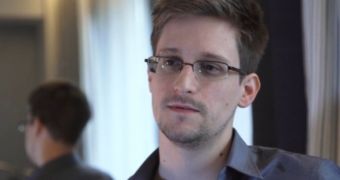Shortly before Edward Snowden's name became known around the world, thanks to all the leaks he made available to the press, he gave an interview to The Guardian's Glenn Greenwald and Laura Poitras.
The first part of the interview was published shortly after the first leaks and it proved crucial in fighting against attempts to portray Snowden as a rogue agent or driven by interests other than informing the public of the great abuses of the NSA and US government.
Now, The Guardian has published a second part of the interview that covers some interesting topics. In it, Snowden predicts the sort of charges that will be made against him.
Snowden predicted the charges made against him
He believed that the US government will accuse him of espionage and of aiding the enemy. The interview was shot on June 6, 2013. In the days and weeks after it was shot, that's exactly what the US charged him with.
The government argued that disclosing the systems the NSA and other spy agencies use for surveillance may make terrorists change their methods of communication, making it harder to track them.
But Snowden believes that, even though that may be true, because the mass surveillance systems affect both the enemy and regular citizens of the US and the world, his duty was foremost to inform this public of the abuses.
He started out believing the US government was a force of good
Snowden didn't start out opposing the government or surveillance in general. He joined the government apparatus when he was young, just as the invasion of Iraq had started, and he believed that what the US and the government were doing was good. He believed that the US was really freeing oppressed people.
But as he started finding out more about what was really going on, the truth, as opposed to the propaganda the US government pushes – the propaganda he had believed – Snowden realized that there is no greater good and that the US government was really only working for itself.
"The structures of power that exist are working to their own ends, to extend their capability at the expense of the freedom of all publics," he says in the interview.

 14 DAY TRIAL //
14 DAY TRIAL //